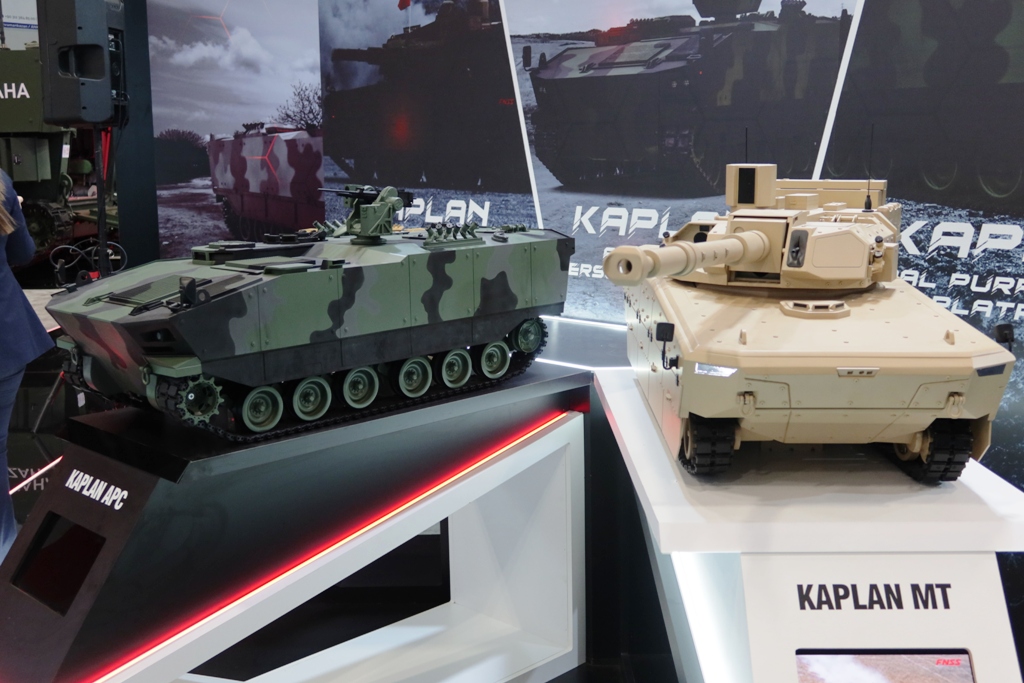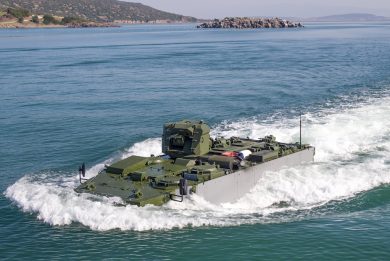
SAHA Expo 2024 – FNSS new structure will be decided soon
A few weeks after the announcement of the buy-back by the Nurol Group of all the shares that BAE Systems owned in FNSS, one of the Turkish armoured vehicles champions, EDR On-Line met at SAHA Expo Mr. Nail Kurt, the company General Manager and CEO, and took the opportunity for getting his view on the recent changing
It is to note that Mr. Kurt started working for Nurol Makina in 1987, the sister company of FNSS within Nurol that deals with lighter 4×4 vehicles, even before FNSS was created, and in 1990 moved to the new joint venture as soon as this was founded. Who better than him to illustrate to our readers the reasons that led to the end of the Turkish-US JV.
“As in any partnership, I think that as long as the partners capabilities and abilities complement each other the partnership grows, develops and gets better and better. This was the case for FNSS for the first 15, maybe 20 years. After some time, everything was pretty much equalized,” Mr. Kurt explains, adding that of course sometimes the two sides were still learning from each other.
“Considering multinational JVs, I read in some literature that their average lifespan is six to seven years. FNSS has reached 35 years, which if not a world record is definitely a Turkish record,” the FNSS CEO said.

His task was to run the company, as he was not one of the partners, these being the Nurol Group, which detained 51% of the shares, and BAE Systems, which owned the remaining 49%. “As a professional I had just to work and do my best in a given condition, and that condition has been until now the JV structure. It was the partners that started realising that time had come for a change. There may have been different reasons, and I’m not here to judge that or evaluate that either. The partners considered it was a good time and there was full agreement between BAE Systems and Nurol, it was not a divorce. Which will be the advantages and disadvantages of the new situation? Again, it is my job now to assess the new situation and work accordingly so; I know things will be different, and my job is to take those differences and do my best to turn them into an advantage for FNSS,” Nail Kurt stated.
The two partners took the decision of ending the JV together and without tensions, which leaves the door open to possible cooperation in the future considering the past experience which was fully positive.
How much BAE Systems considerable research and development capacity impacted the growth of FNSS? “Apart from the ACV and the M113 licensing agreements, in the initial years of FNSS, all products developed later, which represent 95% of our current product portfolio, are not related to BAE Systems in terms of intellectual property, as IP belongs either to FNSS or to the Turkish Government, when the latter paid the development cost in some contracts. For example, all IP linked to the vehicles being provided to Indonesia belong to FNSS, and the same applies to all the PARS family, while if we consider the Otter rapid deployable amphibious wet gap crossing system, here some background IP belong to FNSS while foreground IP belongs to the Turkish Government,” he explained.
“In the first 10 years we learned a lot from BAE Systems,” FNSS CEO admits, “however this has changed since, and I think that in terms of technology insertion and support, I don’t feel anything is going to change, because we have been standing on our foot all the way, and since the early 2000s we did not get anything from US side.” Mr. Kurt clarifies that this was not because BAE Systems objected, but it was rather the Turkish Government that did not want to fall under the ITAR rules, so it was a very deliberate decision, and BAE Systems respected that. “This of course helped us to significantly evolve our capabilities,” he added.

Of course, for people who worked for long in the JV the new situation will be a change. “What will be different is a big question mark,” Nail Kurt says, “many people outside the company consider it will be very positive; this is a new era for me, and I need to make it better, and I have all the reasons to think that it is going to be better, without tying it back to any of the partners. As a JV, I think you have certain disadvantages of having two half-owners, as opposed to having one full owner. Now we feel full ownership, although it might be more psychological than real,” Mr. Kurt said.
The process is close to be completed. “For the time being the agreement between the two companies is still valid, as we are awaiting the governmental approvement to the transaction. This should happen in a few weeks, then we will become operational with the new structure,” the CEO says, adding that “this will dictate the new board of directors.”
Photos by P. Valpolini



